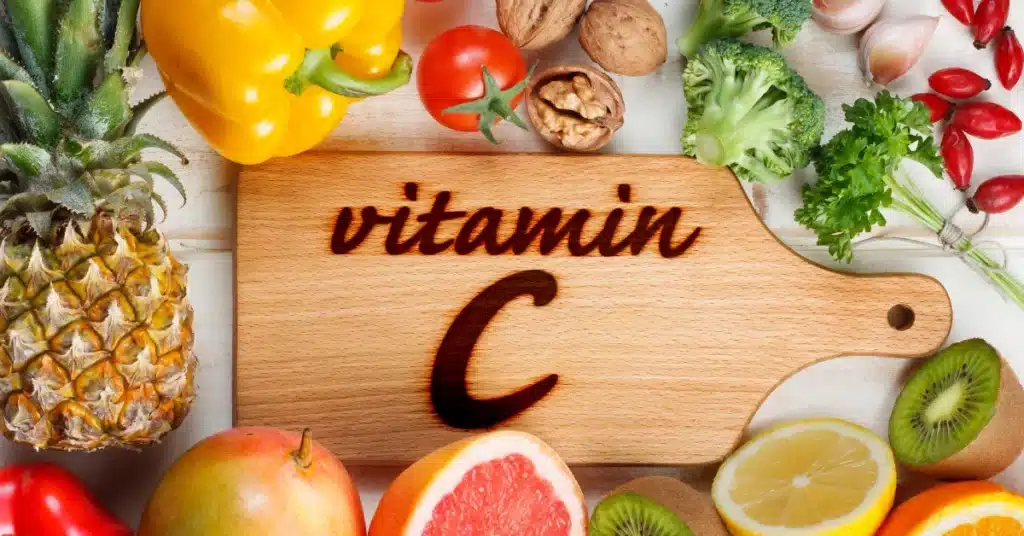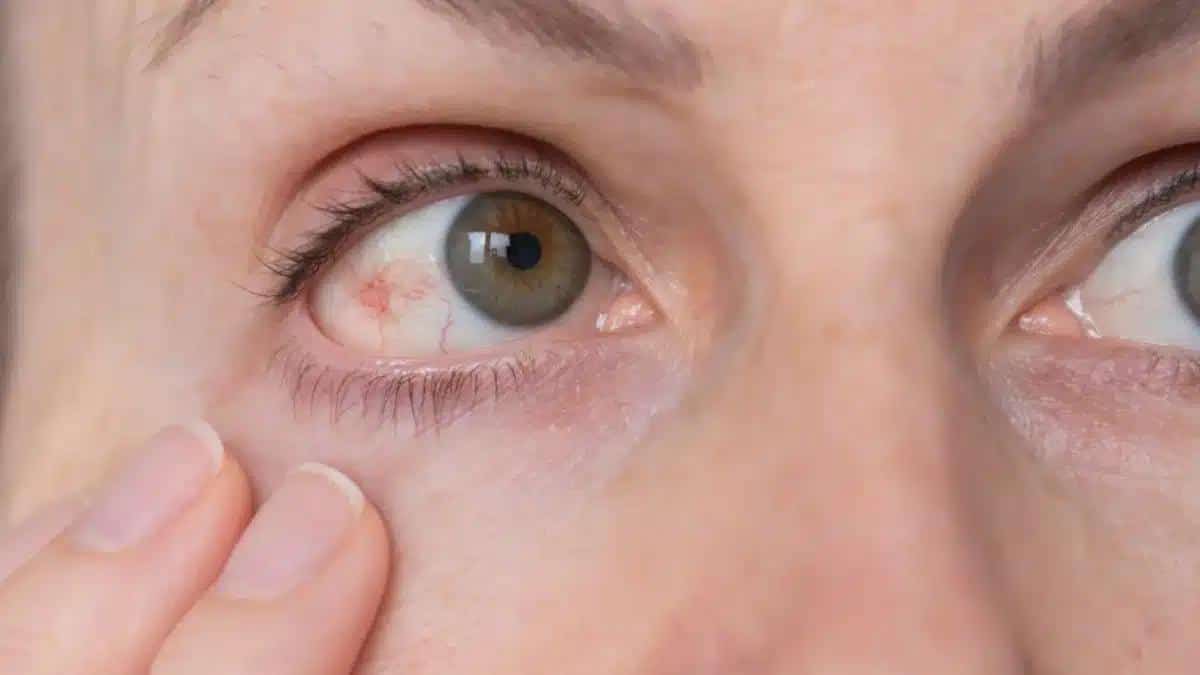Intraocular pressure (IOP), another name for eye pressure, is a very important part of eye health.
Glaucoma and other eye diseases can be caused by high eye pressure. If left untreated, Glaucoma might cause blindness.
Even though eye pressure can be controlled with medicine and surgery, vitamin supplements can also help in maintaining eye pressure.
This article will discuss various vitamins to reduce eye pressure and keep your eyes healthy.
What vitamins help reduce eye pressure
Managing eye pressure is important to keeping your eyes healthy and maintaining your sight.
Much research has been done on the possible link between vitamins and Intraocular Pressure (IOP).
In particular, vitamins A, C, D, and E have gotten much attention because they might help lower eye pressure.
Now, let’s talk about how these vitamins help lower IOP
Want to know which food item helps reduce eye pressure? Read our article: Discovering the Best Foods to Reduce Eye Pressure
and manage your Glaucoma Today!
Vitamin A
Vitamin A play a vital role in keeping your eyes healthy by lowering eye pressure.
As a result, it helps the retina to work properly, improving vision in low light and making it easier to adjust to changes in light.
In addition, Vitamin A helps keep the cornea healthy and may lower the chance of damage due to high Intraocular Pressure.
To lower eye pressure and keep the eyes healthy, Vitamin A can be very helpful because it protects important eye structures.
Vitamin C
 Source: piotr_malczyk
Source: piotr_malczykThe antioxidant qualities of Vitamin C make it an important nutrient that may help lower eye pressure.
Because it is an antioxidant, it protects our eyes from oxidative stress, sometimes leading to high eye pressure.
Vitamin C helps keep the trabecular meshwork healthy by preventing unwanted free radicals. Trabecular meshwork helps in draining extra fluid and maintaining IOP.
Vitamin C-rich foods, like citrus fruits and leafy greens, may help control IOP and improve your general eye health.
Know everything about low eye pressure with our article: Low Eye Pressure: Common Symptoms, Causes, and Treatment
Vitamin D
Getting proper amounts of Vitamin D is important for keeping your eyes healthy. Vitamin D can help reduce inflammation, protecting the eyes from harm.
Some studies have found a link between a lack of Vitamin D and a high chance of getting Glaucoma.
Still, there have been results that have produced contradictory results as well.
A study in the Saudi Journal of Ophthalmology found insufficient Vitamin D and Glaucoma are not significantly linked.
In the same way, studies on Vitamin D levels in blood showed that Vitamin D had little effect on Intraocular Pressure (IOP).
Because of this, we need more solid proof to understand better how Vitamin D lowers eye pressure.
Explore the various Glaucoma eye drops with our article: Understanding Glaucoma Eye Drops: Types, Uses, and Side Effects
Vitamin E
Since Vitamin E is known for keeping the free radicals away, it helps maintain eye health.
Research on Alpha-Tocopherol, a type of Vitamin E, found that it might help treat Glaucoma.
However, a different study examining blood vitamin levels found that Vitamin E doesn’t significantly affect eye pressure.
So, more research is needed to understand how Vitamin E can help lower eye pressure fully.
Conclusion
In conclusion, understanding the role of vitamins in reducing eye pressure is crucial for overall eye health and preserving one’s sight.
Vitamins A, C, D, and E may help prevent Glaucoma by aiding in managing IOP.
With their various functions and antioxidant properties, these vitamins show a lot of promise in lowering eye pressure.
Many studies have found conflicting results, emphasizing the need for more studies to prove vitamin supplements reduce IOP.
Frequently Asked Questions
What are the best vitamins to reduce eye pressure?
The most notable vitamins for reducing eye pressure include vitamins A, C, D, and E. These vitamins have shown the potential to contribute to regulating Intraocular Pressure (IOP) and maintaining optimal eye health.
Can vitamin supplements help lower Intraocular Pressure (IOP)?
Taking vitamin pills can help control high blood pressure, but they shouldn’t be used in place of medical treatment. Even though vitamins A, C, D, and E might help lower eye pressure, it’s still important to talk to an eye doctor for a full treatment plan.
Are there conflicting studies on the effectiveness of Vitamin D in reducing eye pressure?
There have been conflicting research findings regarding the relationship between Vitamin D and Glaucoma risk. While some studies suggest a potential link, others have yet to find a significant connection. More research is needed for a conclusive understanding.
How do antioxidants in Vitamin C contribute to eye health and Intraocular Pressure (IOP) regulation?
Antioxidants like Vitamin C protect the eyes from oxidative stress, which can raise IOP. Vitamin C may help drain fluid and regulate IOP by supporting trabecular meshwork. Vitamin C-rich food items like citrus fruits and leafy greens help improve eye health.
Is more research needed to understand the impact of Vitamin E on eye pressure?
Further research is needed to understand how Vitamin E lowers eye pressure.
Alpha-Tocopherol may treat Glaucoma, but some research results had conflicting outcomes. Vitamin E may lower ocular pressure, but more research is needed.
When referencing outside resources, GoodrxMedicine always provides full citations. To learn more about the measures we use to maintain the quality of our content, please review our Content Information Policy.











